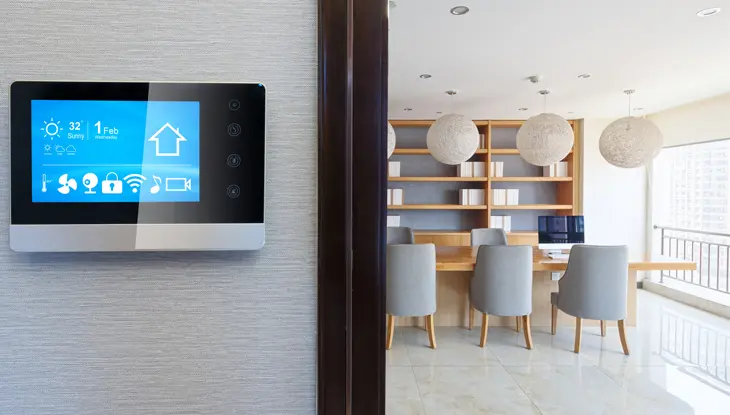How to Save your Business Money During the Energy Crisis
The current energy crisis – caused by a collision of multiple global factors – has seen bills soar to unprecedented highs.
For some businesses, the price hikes have already been so severe that they’ve had to close their doors for good.
For those firms anxiously eyeing up the coming months, worried they could face a similar fate, actions can be taken to shield bottom lines from the worst.
In this blog, we’ll itemise a series of short and long-term steps businesses can take to save money during the energy crisis. These steps may not prevent the arrival of bills that are higher than normal but following them could be enough to ensure they’re at least manageable.
Short-term changes to save your business money
Carry out an energy audit

To save a meaningful amount of money on energy usage, you need to know exactly how much you’re using, when you’re using it, and why.
Energy audits can be carried out in-house but they’re not as simple as they might seem. To get a comprehensive, actionable overview, it’s worth bringing in the experts.
As part of the process, energy experts will examine all aspects of the business’ consumption, including from where it is sourced and to which areas of the business it is directed. Trends and spikes in usage will be identified and unnecessary causes detected. These can range from old and inefficient machinery and heating coming on outside of office hours, to computers being left on standby.
Armed with this information, you can then develop a plan to slash consumption and the costs associated with it.
In the meantime, organisations such as the Carbon Trust and the Energy Savings Trust offer advice on business energy efficiency that can be used to make immediate changes.
Control your heating
It seems obvious but if you’re not keeping tabs on your thermostat, you could well be pouring money down the proverbial drain. Heating accounts for a massive proportion of overall energy usage and every 1°C that’s added to the ambient temperature can increase heating costs by 8%.
If saving money on your business energy is a priority, only switching it on when required is essential. Even on the coldest of days, if the winter sun is glowing, it will be giving off heat. You can harness this warmth more effectively by making sure curtains and blinds are open during the day. The sun’s rays will raise the room temperature naturally, allowing you to turn the radiators down.
There are also devices on the market that automatically adapt heating settings to match the outside temperature. Alternatively, you can put someone in charge of monitoring temperatures each day.
If your office has air conditioning, ensure it’s not competing with the central heating. Should the temperature reach a point where it’s too warm, whatever you do, don’t use the air conditioning to balance it out.
Optimising your business heating with energy-efficient boilers, distribution systems, and zone heating options is another compelling option. Following an audit, you can locate the best heating system for your business and access advanced heating solutions such as Air Source and Ground Source Heat Pumps, Biomass boilers, and CHP systems.
Old gas boilers and distribution systems can end up wasting gas, which means you’re footing the bill for gas that doesn’t get converted into heat. Thus, improving your heating efficiency could help to save your business money.
Switch your suppliers
With business gas and business electricity prices going up across the board, switching suppliers may not have a massive effect on your bills but it could still make a difference.
This is difficult if you’re in the middle of a business energy contract as you’ll usually need to wait for the contract to expire before switching. However, if you’re freshly out of contract or on a deemed or default tariff, switching suppliers could save valuable pounds and pence.
In the situation where you’re locked into a contract and unable to switch, it’s worth contacting your supplier to see if there’s a cheaper tariff they can put you on. There’s a chance they’d rather have you pay a little less and stay with them, than continue paying more and then lose you once the contract ends.
Don’t forget about your business water either. Since 2017, businesses have been able to choose their water supplier and the sector is monitored by a regulatory authority, Ofwat.
Increased competition between water suppliers brings multiple benefits, including lower charges, improved value for money and better customer service. By switching suppliers, you could see a 40% reduction in your water bills, saving your business money.
Assess your lighting
The first thing to remember with lighting is to make sure it’s turned off before leaving a room. And definitely when leaving the workplace for an extended period.
If you haven’t switched from incandescent bulbs to LEDs, now’s the time to do it. Not only do LEDs last much longer, but the average life span of an LED is also around 10 years at 50,000 hours of light, massively cutting maintenance running costs.
Moreover, as LED lighting uses around 85% less energy than traditional bulbs and only create a small amount of heat, they also reduce the levels of Co2 released into the environment.
Installing motion sensors is another step up and one that pays back handsomely in the long term. By ensuring lights remain off and only turn on when someone enters a room, you can be certain of maximum lighting efficiency.
Install a smart meter

Smart meters aren’t just for domestic energy customers. Businesses can also install them to track energy usage and automatically transmit readings to their supplier to ensure accurate billing.
The digital displays on smart meters also show how much energy you’ve used over a certain period, acting as a handy visual reminder to keep track of what energy is being used.
If you don’t have one, it’s worth checking whether you’re eligible for a business smart meter by contacting your energy supplier, or by asking your landlord if you rent your business premises. In some cases, you can even get one for free.
Turn appliances off when they’re not in use
It continues to be the case that many businesses still don’t realise that appliances such as computers use energy even when on standby mode. Effectively, if you leave laptops or PCs on overnight, you’re wasting electricity. Which means you’re wasting money.
Just think, every single little red dot costs around £1 a year for every watt of power used. If you have a lot of appliances on standby every day, it’s not long before that starts adding up.
Where off switches are hard to locate, turning appliances off at the electric socket when finished with them ensures no electricity will be wasted.
Get your people involved
This is arguably the most important thing you can do and it’s free.
Weekly emails describing what people can do to help, or asking for suggestions for how to improve energy efficiency will ensure best practice is consistent throughout the organisation.
Long-term changes to save your business money
Insulate your workplace

It is almost pointless to expend energy heating a building that is inadequately insulated. The heat quickly escapes meaning heating needs to be on constantly during the colder months. In effect, all you end up doing is paying extortionate fees to keep temporarily warm.
Closing windows and doors when the heating is on or sealing windows that are no longer in use are simple fixes that can make a difference. However, if you want to make a big dent in your energy bills, investing in the installation of proper insulation in cavity walls and ceilings is the way to go.
Go digital
Many organisations are currently amid ‘digital transformations‘ or have recently completed them. By moving your operations to the cloud, you can end your reliance on paper and energy-hungry appliances like photocopiers for good.
Moreover, by using online collaboration tools, you can choose days when working from home makes more sense, meaning you can fully shut down the office for those days. With zero energy being used, zero money will be spent on energy.
Invest in greener energy
Ofgem provides a range of schemes and grants designed to help businesses become more energy-efficient at low cost. For example, you may be eligible for government support to pay for new energy-efficient equipment.
The most recent initiative was the Renewable Heat Incentive (RHI), however, this closed to new applications at the end of March 2022 to make way for its successor scheme, the Boiler Upgrade Scheme (BUS). The Department for Business, Energy, and Industrial Strategy has published the draft regulations for the BUS which can be found here.
Otherwise, your energy supplier might offer grants to help with similar costs. Either way, looking at what funding is available from a range of sources is a worthwhile endeavour as you may well find that going green is easier and cheaper than previously imagined.
Optimise your energy usage with Tariff
Gas prices in particular are volatile at the best of times but at times like these, you need your heating system to be as efficient as possible.
Tariff’s experienced teams carry out free heating systems audits and will recommend the solutions that are the best fit for your business, including information on costs, carbon savings, ROI, and any grants your business might qualify for.
Speak to us today and find out how you can:
Reduce your gas consumption: By upgrading your gas boiler and distribution system you will likely reduce your gas consumption. Any gas you do pay for and use will be more efficiently converted into heat.
Lower your gas bills: Inefficient heating systems can waste gas, but wasted gas still needs to be paid for. Upgrading your heating system optimises your gas usage and will help to lower your bills.
Heat specific areas: Different areas of your business will have different heating requirements. With a newer, zone-based heating system, you can control which areas are heated and to what level.
Decrease your carbon footprint: Improving the efficiency of your heating system can help to reduce your carbon footprint, directing heat to where it’s needed whilst reducing the gas that’s burnt. Reducing your carbon footprint provides powerful PR opportunities with which you can market your business as being ‘green’. In these climate-conscious times, this resonates with consumers, investors, and job-seekers.
We understand that it isn’t always easy to make that green switch, switch energy providers or even understand energy bills. That is why customer service is the heart of everything we do.
Speak to us today.


